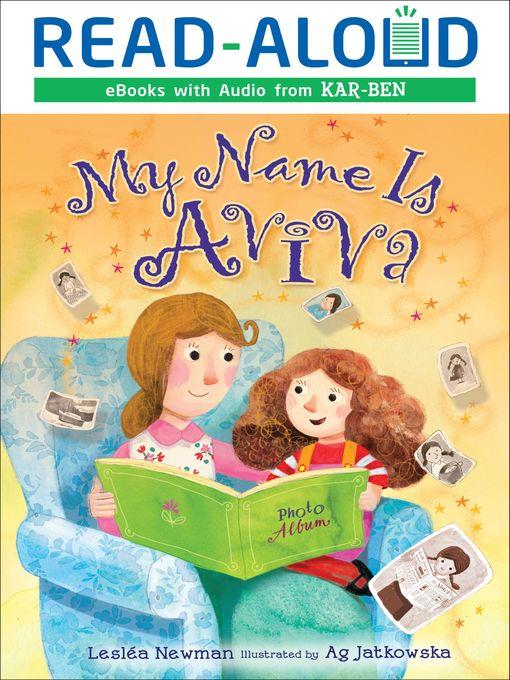
My Name is Aviva
Life Cycle
فرمت کتاب
ebook
تاریخ انتشار
2015
Lexile Score
580
Reading Level
2-3
نویسنده
Book Buddy Digital Mediaشابک
9781512491739
کتاب های مرتبط
- اطلاعات
- نقد و بررسی
- دیدگاه کاربران
نقد و بررسی

August 3, 2015
It’s tough to be a kid with an unusual name (unless you’re Blue Ivy Carter, perhaps). In accordance with Jewish tradition, Newman’s heroine has been named after a loved one, her late great-grandmother Ada, whose Hebrew name was Aviva. Unfortunately, it inspires her classmates to call her everything from “Amoeba” to “Viva La France.” Henceforth, Aviva wants to be known as Emily. Her parents play along, but they also make sure Aviva understand her name’s backstory: how Ada immigrated to America as a child, worked in a lace factory at age 10, taught herself English, and made chicken soup “so delicious, everyone told her to open a restaurant.” Aviva realizes that her name has a more profound meaning than she ever imagined—it connects her not only to her faith traditions but also to a woman who was “brave and smart and talented and kind.” Jatkowska’s upbeat characters have an oddly wooden, doll-like quality, but it doesn’t intrude on Newman’s storytelling, which is characteristically empathic, soulful, and wise—not to mention a great lead-in to discussions about readers’ own names. Ages 3–8. Author’s agent: Elizabeth Harding, Curtis Brown. Illustrator’s agency: Bright Agency.

August 1, 2015
PreS-Gr 2-Aviva is tired of being teased about her name. At school she is called Viva la France or, even worse, amoeba. So she takes matters into her own hands and decides to change her name to Emily. Her mother takes the change in stride, calling her daughter Emily as they make chicken soup, read a book, and look at the stars. All the while, Aviva/Emily's mom tells stories of her own grandmother Ada, who taught her to cook, to sew, to read, and so much more. At bedtime, the little girl finally asks, "Why did you name me Aviva, anyway?" Her parents explain the Jewish tradition of naming a baby after beloved family or friends who are no longer living. Grandma Ada did not live to meet her great-granddaughter, but she lives on in the choice of the name Aviva, which was her Hebrew name. As she falls asleep, Aviva decides that she is indeed Aviva, proud of her name and her heritage. Many Jewish children are curious about the origin of their names and wonder why they are unusual or old fashioned. Newman's clear and rich narrative explains the custom with warmth and appreciation for tradition. The illustrations, depicting both past and present, are a bit cartoonish for the quality of the text, but they help support the narrative. VERDICT A recommended purchase for all Judaic collections.-Martha Link Yesowitch, Charlotte Mecklenburg Library, NC
Copyright 2015 School Library Journal, LLC Used with permission.

July 15, 2015
The mean kids at Aviva's school are cleverer than the mean kids in most neighborhoods. When students at Aviva's school want to make fun of her name, they call her "Amoeba" and "Viva La France." This requires a certain level of sophistication. (A really cruel kid might have called her "Bieber," but then the book would be instantly out of date.) Aviva is ready to change her name to Emily until her parents tell her why they chose that particular name. Even the youngest Jewish readers will probably guess the secret the moment Aviva's parents start talking about her great-grandmother Ada, an immigrant from Russia who "studied the English newspaper every night to learn her ABC's" and sewed stitches "as fine as spider webs." Stories about Ada run throughout the book-arguably, at least one story too many. The parents are reminded of a story every time they do something she did: sew on a button or pick up a book. The device is contrived and repetitive, but the stories are often moving and do lead finally to the information that Ada's Hebrew name was Aviva. And Jatkowska's illustrations are charming. They look like patchwork dolls, pieced together from items found around the house. This book could have used a little trimming, but it's clever enough to make kids curious about their own given names. (Picture book. 5-8)
COPYRIGHT(2015) Kirkus Reviews, ALL RIGHTS RESERVED.

























دیدگاه کاربران